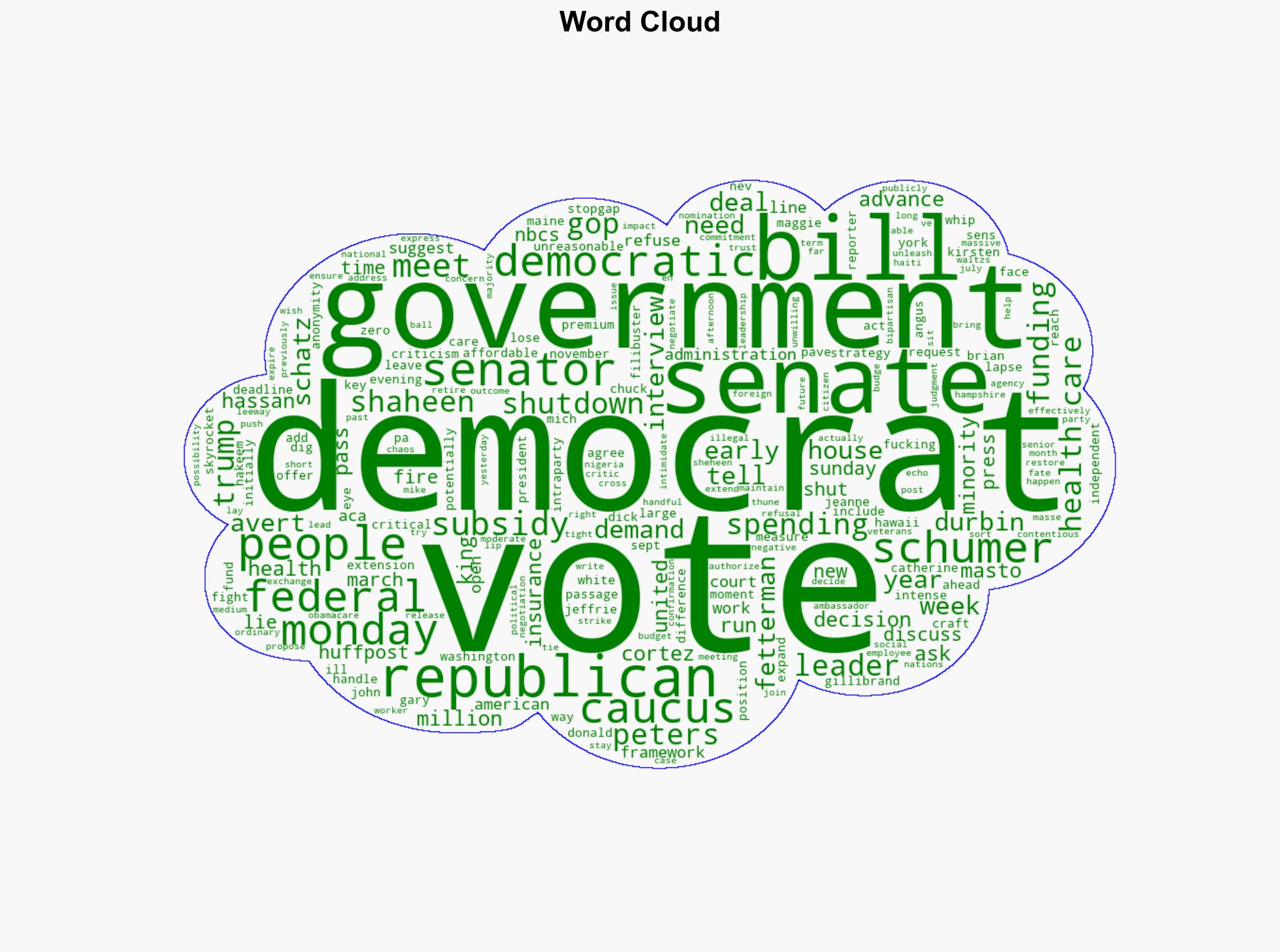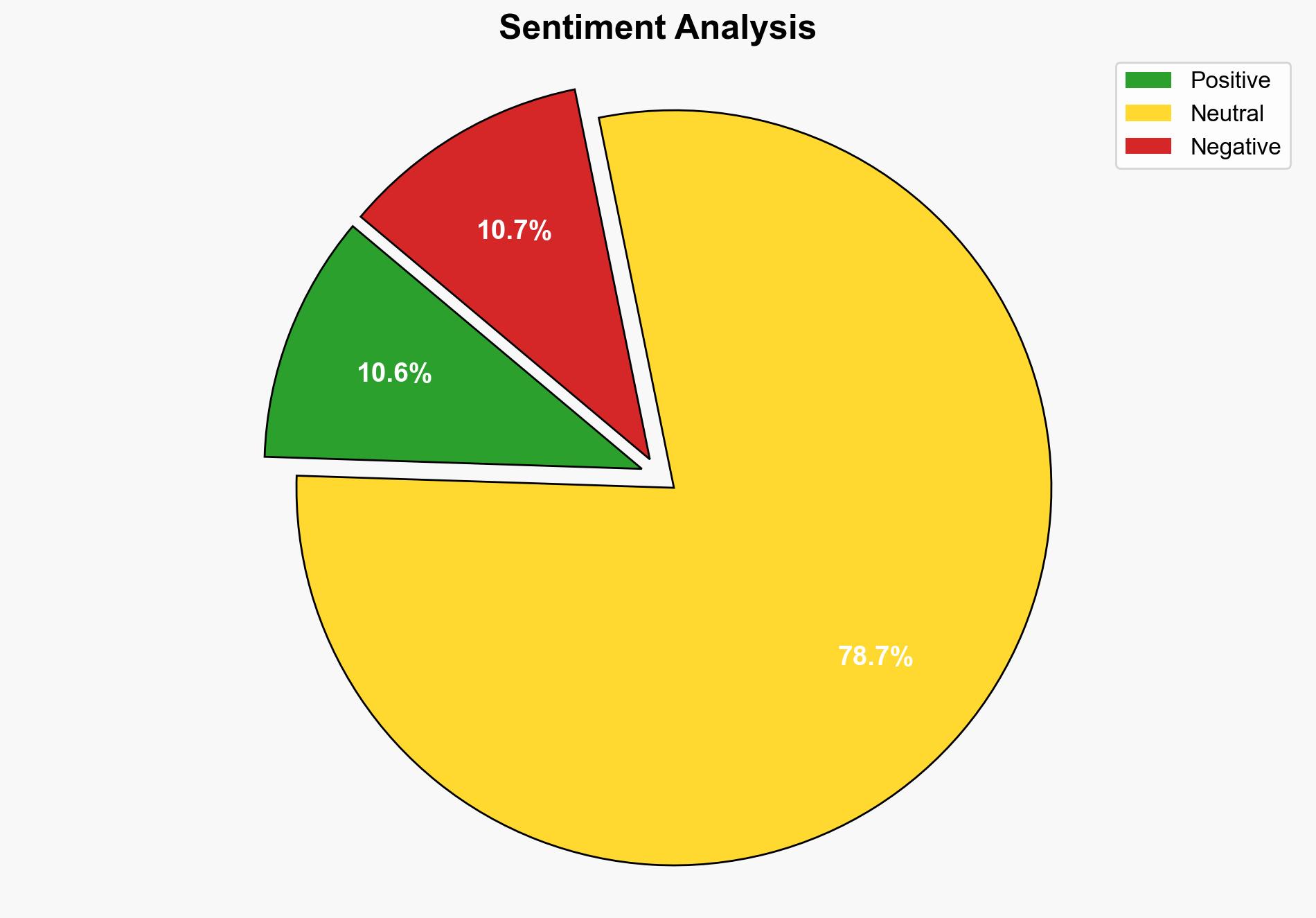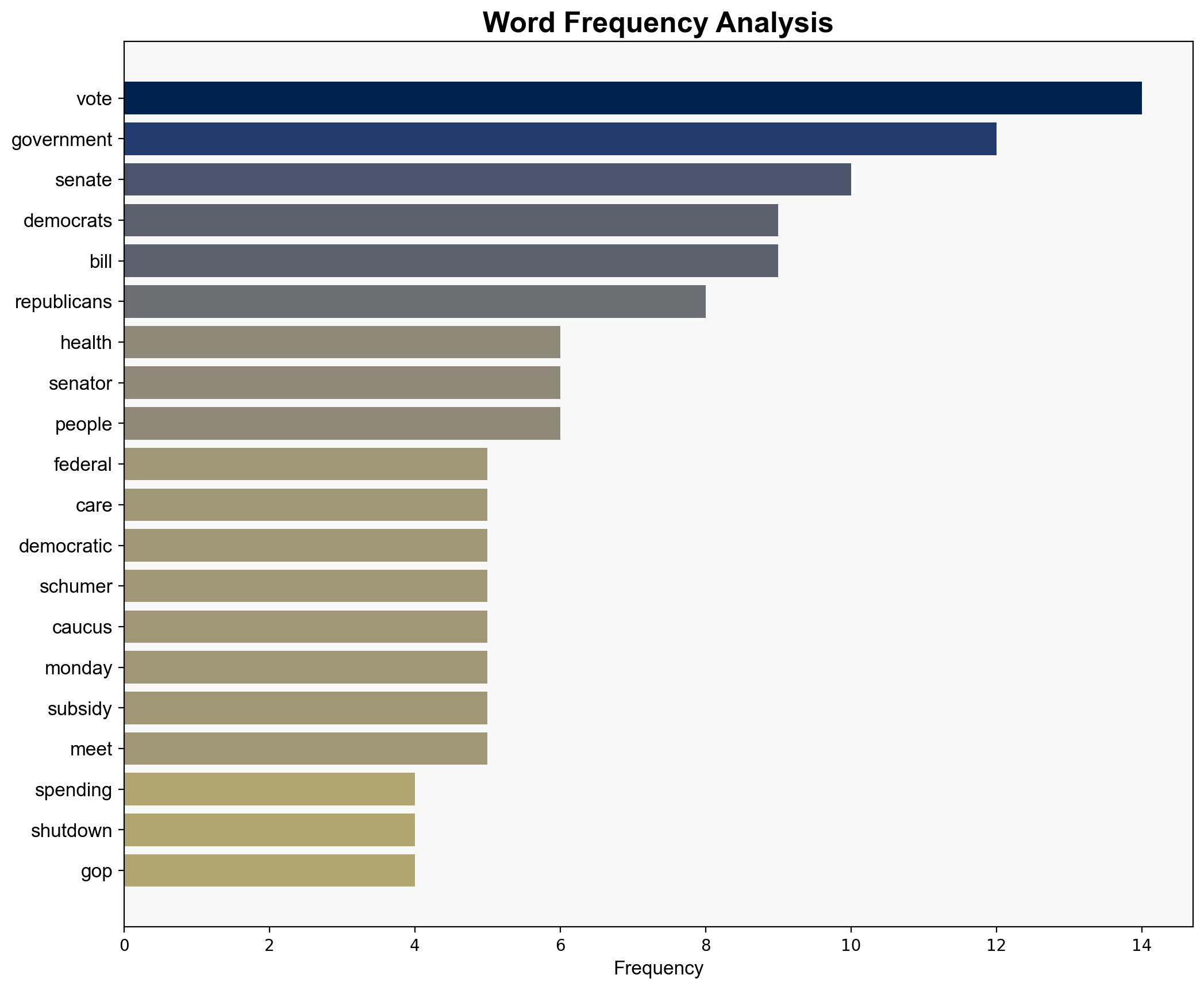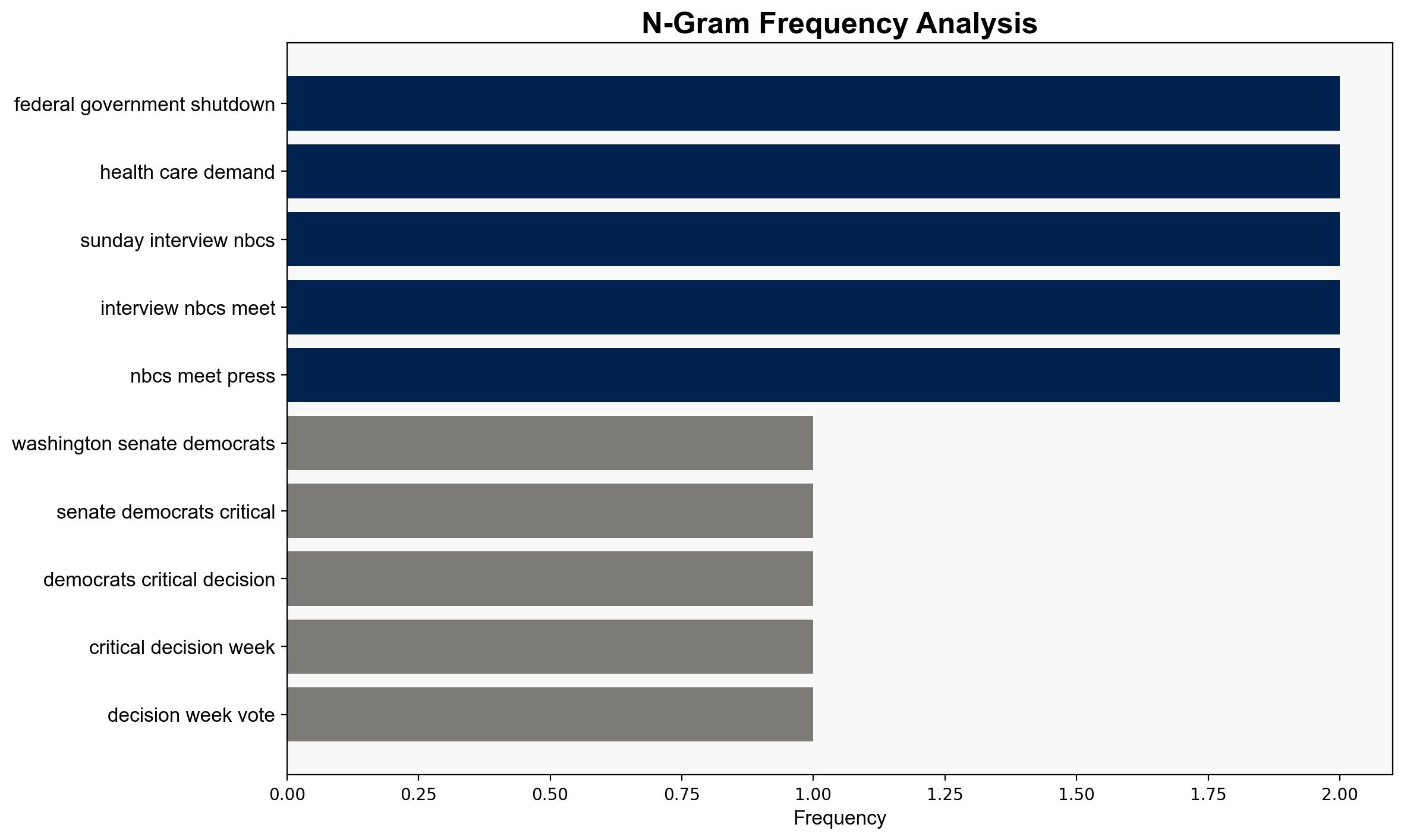These Senate Democrats Could Make Or Break The Government Shutdown Fight – HuffPost
Published on: 2025-09-29
Intelligence Report: These Senate Democrats Could Make Or Break The Government Shutdown Fight – HuffPost
1. BLUF (Bottom Line Up Front)
The strategic judgment indicates a moderate confidence level that Senate Democrats will ultimately support a stopgap spending bill to avert a government shutdown, despite internal disagreements over health care demands. The most supported hypothesis suggests that Democrats will prioritize maintaining government operations over health care subsidy extensions. It is recommended to closely monitor negotiations and prepare for potential last-minute shifts in party alignment.
2. Competing Hypotheses
Hypothesis 1: Senate Democrats will vote to advance the GOP-crafted spending bill, prioritizing the prevention of a government shutdown over health care subsidy demands. This hypothesis is supported by historical precedence of Democrats compromising to avoid shutdowns and the political leeway of retiring senators.
Hypothesis 2: Senate Democrats will hold firm on health care subsidy demands, risking a government shutdown. This is supported by the strong intraparty push for health care issues and previous instances where Democrats have taken a firm stand on similar issues.
Using ACH 2.0, Hypothesis 1 is better supported due to the pragmatic approach often taken by the party to avoid shutdowns, as well as the potential political fallout from a shutdown.
3. Key Assumptions and Red Flags
Assumptions include the belief that Democrats will prioritize avoiding a shutdown over health care demands and that internal party unity will prevail. Red flags include the potential for unexpected shifts in party dynamics, especially if public opinion strongly favors health care demands. The assumption that Republicans will not budge on health care subsidies could be a blind spot if negotiations shift unexpectedly.
4. Implications and Strategic Risks
A government shutdown could have significant economic repercussions, affecting federal employees and services. It could also lead to increased political polarization and impact public trust in government efficacy. The risk of cascading effects includes potential disruptions in federal operations and public services, which could escalate into broader economic challenges.
5. Recommendations and Outlook
- Monitor ongoing negotiations closely, particularly any changes in stance from key Democratic senators.
- Prepare for potential public relations strategies to mitigate fallout from a shutdown, if it occurs.
- Scenario-based projections:
- Best Case: A bipartisan agreement is reached, averting a shutdown and maintaining health care subsidies.
- Worst Case: A prolonged shutdown occurs, leading to significant economic and political consequences.
- Most Likely: A temporary compromise is reached, averting a shutdown with limited concessions on health care.
6. Key Individuals and Entities
Chuck Schumer, Dick Durbin, Catherine Cortez Masto, Maggie Hassan, John Fetterman, Gary Peters, Brian Schatz, Kirsten Gillibrand, Jeanne Shaheen, Angus King, Hakeem Jeffries, Donald Trump.
7. Thematic Tags
national security threats, economic stability, political strategy, legislative negotiations




